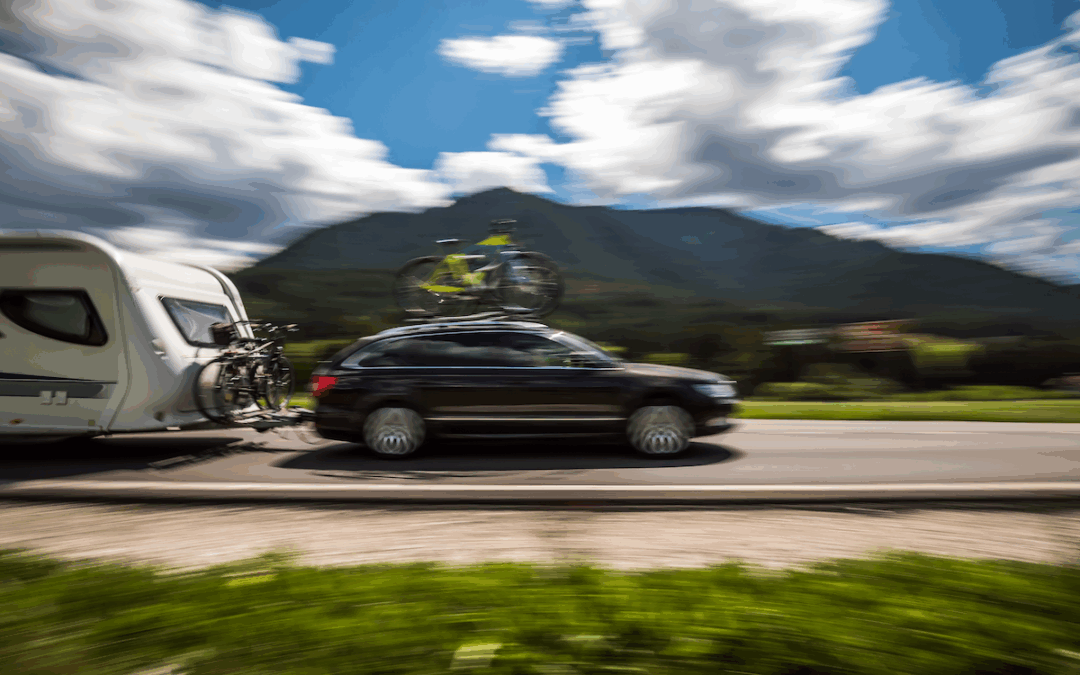Colorado’s rugged landscapes make for incredible camping adventures, but hauling a trailer or boat through mountain passes and long stretches of highway requires extra preparation. In this month’s blog post, we share ways to ensure your vehicle is ready to handle the journey smoothly and safely before hitting the road.
Pre-Trip Preparation
A successful camping trip starts with proper planning. Here’s what to check before you go:
- Inspect and Maintain Your Tow Vehicle
- Check engine oil, coolant, brake fluid, and transmission fluid to ensure your vehicle can handle towing demands.
- Inspect brakes, including pads and rotors, to confirm they are in good condition for stopping extra weight.
- Verify tire tread depth and air pressure—adjusting for the additional load if necessary.
- Test the battery, especially if traveling in cooler mountain climates where batteries work harder.
- Trailer & Hitch Safety
- Ensure your hitch and receiver match the weight of your trailer.
- Inspect trailer brakes, lights, and electrical connections for proper functionality.
- Check trailer tires, including spare, for wear and proper inflation.
- Secure chains, couplers, and breakaway cables to prevent mishaps on the road.
- Packing Essentials for a Smooth Ride
- Balance the trailer load to prevent swaying or fishtailing during travel.
- Pack emergency gear, including a jack, tire repair kit, extra fluids, and basic tools.
- Bring extra tie-downs or straps for securing items in the trailer or truck bed.
Keeping Your Vehicle Safe During Travel
Once you are on the road, here’s how to ensure a smooth and stress-free drive:
- Drive Smart & Steady
- Maintain a safe following distance—your stopping power is reduced with extra weight.
- Use lower gears when descending mountain roads to avoid overheating brakes.
- Keep an eye on engine temperature, especially when climbing steep inclines.
- Monitor Your Load
- Stop periodically to check the hitch, trailer tires, and cargo straps.
- Listen for unusual noises—rattling or dragging could indicate shifting cargo or loose connections.
- Plan Fuel & Rest Stops
- Towing reduces fuel efficiency, so plan refueling stops accordingly.
- Give your vehicle breaks—long drives in high temperatures can strain your engine and tires.
A well-prepared vehicle makes for a worry-free camping trip. By taking time for maintenance checks, hitch inspections, and smart driving habits, you will keep your adventure smooth and safe. If you would like to have your vehicle checked prior to your next camping adventure, contact the service professionals at Campus Repair to schedule an appointment.

